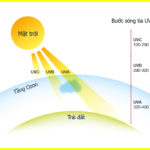By taking a 30-minute nap, people can receive the following health benefits:
Napping allows the brain to rest
Studies have shown that even a short nap can enhance alertness and concentration more effectively than consuming coffee or tea.
Napping is considered as a powerful medicine for the brain. During this time, the brain rests and produces many neurotransmitters, while increasing the connections between brain cells and eliminating toxic substances that accumulate in the brain.

Illustration photo
Napping reduces eye strain
It is noticeable that when we focus on something or frequently use a computer screen, eye fatigue and eye pain can occur.
Taking a 30-minute nap allows the eyes to rest and reduces the strain on the eyeballs and retinas. As a result, it does not negatively affect vision and minimizes the risk of eye diseases.
Napping reduces the risk of various diseases
Many studies have shown that a 30-minute nap can reduce the risk of death from heart disease by 37%. Additionally, napping also helps the body cells to repair themselves and improve the immune system.
After lunch, taking a nap allows the body to rest, relieve fatigue and pressure from the morning.
If people skip the resting period and start studying or working right away, it can harm the digestive system, cause headaches, insomnia… and even lead to mental and muscular paralysis.

Illustration photo
Napping helps regain energy after half a day of work
Just taking a 30-minute nap can make the mind comfortable, relieve pressure, and replenish energy for the afternoon work session. This is thanks to the production of serotonin when we rest enough, which helps balance mood.
After half a day of work, our bodies start to deplete energy and experience fatigue. When we don’t get enough rest and shut our eyes, the brain has to work harder to maintain its activities, thereby producing the stress hormone cortisol.
If this condition is not addressed, the immediate drawback is that the afternoon work session will be less efficient. And the long-term disadvantage is that people will have to face chronic stress, which affects their health.





































